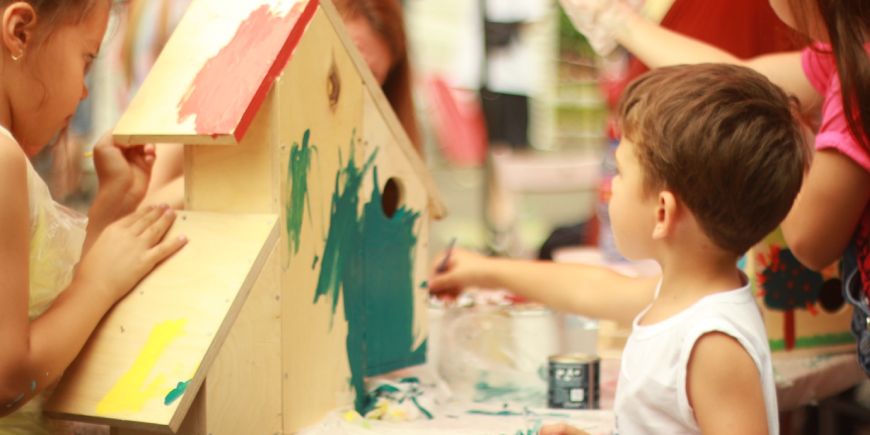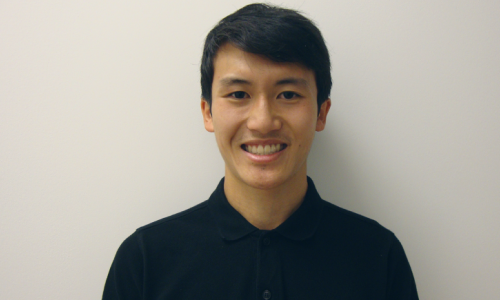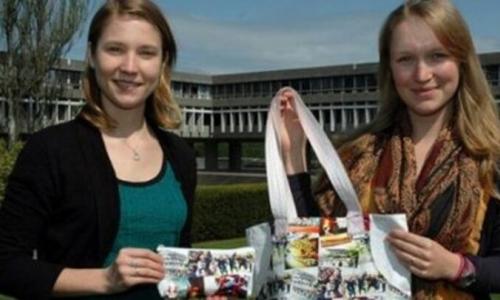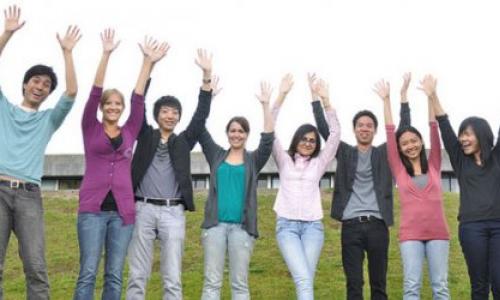
My co-op experience took me to a place I had not been in many years: the exciting, colourful and noisy place that is kindergarten. As a kinesiology student with plans of entering the field of occupational therapy, I was not sure I would be able to find a placement that was just right for me. But with a little research (and some help from my advisor) I found a wonderful job that challenged me, rewarded me, and allowed me to learn new things everyday.
When I arrived at The Mediated Learning Academy, a private school in Coquitlam overlooked by the forests of Burnaby Mountain Conservation Area, I could tell it was a special place. MLA is a school for children with special needs that uses a mediational or “brain-based” teaching approach to allow every child to reach their full potential. Children are supported by more than just their classroom teacher at MLA; occupational therapists, speech therapists, a physiotherapist, counsellors, administrative staff and special education assistants work together to create a unique learning environment. As a Special Education Assistant (SEA), I worked one-on-one with a 6 year old child with Autism Spectrum Disorder in a class of nine children with a variety of special needs. While I worked with the students at MLA I was able to develop countless skills that are relevant to my career goals. These skills include: patience, flexibility, and communication.
Patience
Patience is a skill that is often overlooked in today’s society of instant information and communication. I learned at MLA that progress takes time and if you are patient through any setbacks, amazing things can happen. As an SEA, one critical skill I learned was how to de-escalate a situation. When a child is having a meltdown it is very hard for them to understand logic, therefore it is important to wait until they calm down enough to explain what is happening and find out why they are upset. Being patient with the child allows them to feel safe while they calm down and often leads to shorter meltdowns and less stressful situations. I will be able to apply the patience I have developed at MLA to other opportunities and it will allow me to calmly think about a problem and come up with a solution that is applicable to the situation.
Flexibility
Flexibility or adaptability is a skill that is desired in any profession. By smoothly dealing with problems and adjusting to changes, people will be happier and more work will be done. In the constantly changing environment of a kindergarten class, no two days were the same. A sick child, a rainy day, a misplaced toy or a new face in the room could change the whole atmosphere of the day. I learned to adapt my approach to fit the needs of the children; for example, giving them more time to complete tasks or more breaks if needed. It is important to be able to adapt to success as well, if an activity is going better than expected and breakthroughs are happening, moving on to the next task would be detrimental. Whether you are working with children learning their ABC’s or working on a new project with executives of a company, adaptability helps you propose different ways of looking at things and often can lead to unexpected results.
Communication
Every day, we communicate with the people around us; gestures, words, facial expressions, written work and phone calls all help us get the message across. At MLA, effective communication was key to promote learning. I learned to speak slower, using more simplified sentences when needed and to use eye contact in order to be better understood. Some of the children were non-verbal and different ways of communication were used such as sign language and a form of communication called the Picture Exchange Communication System (PECS) that uses pictures and visual symbols to express what is wanted. I also had to communicate with other SEAs, teachers, therapists and parents to relay information and ask questions. Learning new ways to communicate made me realize the importance of every part of an interaction. The words spoken are only a small factor in understanding what is meant, without proper body language, gestures, eye contact and intonation it is easy to be misunderstood.
My co-op experience at the Mediated learning Academy was far from typical but it taught me so much. In addition to skills such as patience, flexibility and effective communication, I also learned life skills like positive thinking, empathy, and having joy for the small things in life. The kids I worked with taught me to laugh everyday, to ask for help when needed, to be a good friend and to never underestimate the power of kind words. Going back to SFU after a year of work is going to be difficult, but this co-op position has helped me solidify my desire to finish my kinesiology degree and continue my studies in occupational therapy so I can keep working with amazing children like the ones at MLA.
Beyond the Blog













